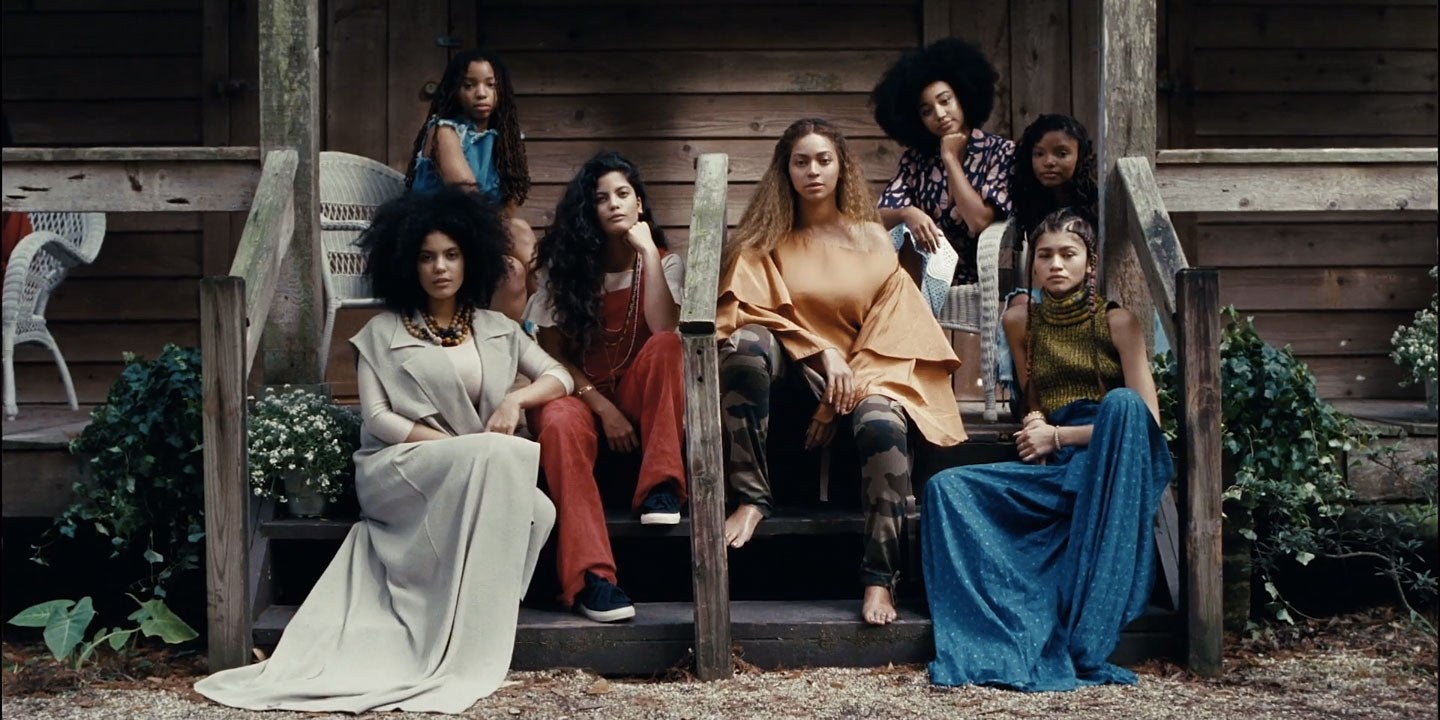
There was something special about Lemonade that I couldn’t quite put my finger on—something richly familiar that was being conveyed perfectly.
It came to me in a rush after my third viewing.
I grabbed my well-worn copy of Their Eyes Were Watching God by Zora Neale Hurston. I found the passage I highlighted back in 1990.
Beyoncé’s ‘Lemonade’ is an Ode to Black Women, And I’m Here for It!
A character says: De nigger woman is de mule uh de world so fur as I can see. 16-year-old me wrote in the margins: “I think Janie’s grandmother is supposed to represent an outdated way of thinking. The line is supposed to show us just how far we’ve come. Black women aren’t mules anymore. Right?”
I’m still not sure.
Here’s what I do know. There are four novels, including Their Eyes Were Watching God, that I believe best capture the experience of Black women from 1619, when the first of us came here, up to the present day.
The major themes in Sula and Song of Solomon by Toni Morrison, Their Eyes Were Watching God by Zora Neale Hurston and The Color Purple by Alice Walker are all brilliantly represented in Beyoncé’s latest project.
Before you light your pitchfork, let me be clear. I am not saying that Beyoncé is in the same category. I am not saying that her visual album is as wholly necessary as the novels cited above. Let’s continue.
What I am saying is that Lemonade’s songs and imagery encompass much of what defines us: the never ending quest for identity, the constant tug of motherhood, the challenges of partnership, the struggle to feel beautiful in a world that thinks we’re anything but, the tenuous relationship we often have with Black men, the tenuous relationship we often have with Black women and the tenuous relationship we often have with ourselves.
Lemonade explores infidelity, racism, sexism, physical and mental abuse, forgiveness, sexuality, ambition and power—and that’s just in the first three songs. She personifies these fictional characters, bringing life to the poetry of the novels.
Of Course Beyonce Gave Us Hair Inspiration in ‘Lemonade’—See 27 Styles We Loved
In Sula, the namesake character has sex with her best friend’s husband, refuses to accept motherhood, chafes under the totality of Blackness and outright refuses to be labeled or conform to anyone’s assumptions of who or what she should be.
In The Color Purple, Celie finds it within herself to forgive Mister at the end of his life, even in light of his horrific behavior.
In Their Eyes Were Watching God, Janie walks away from an abusive relationship—not once but twice—without ever looking back.
In Song of Solomon, First Corinthians Dead steps out from her father’s hand late in life—but doesn’t let age stop her from achieving happiness.
With Lemonade, Beyoncé brings out her inner version of all of these women, figuratively (and literally) smashing the symbols of her oppression while still wearing a bright smile—and throwing up her middle finger in case you’re not clear.
Trayvon Martin, Michael Brown, and Eric Garner’s Mothers Appear in Beyoncé’s ‘Lemonade’ Video
And just like in these novels, there are uncomfortable moments in Lemonade. I remember being in my college dorm room, feeling queasy and uncomfortable when Sula’s mother killed her son because he tried to have sex with her.
It was the same feeling I had when Beyoncé described skinning her partner’s mistress, so that she could wear her skin and be what he wants her to be. It was unpleasant. Yet also relatable, in a way many of us would never publicly profess.
What I see most in Lemonade is a push against the strong Black woman narrative. Yes, we’re strong. But we’re not unbreakable—even if we try to make it seem like we are. Yes, we’re resilient. But we’re also vulnerable. Our heads are not always held high. We get scared. We ache. We cry. We beat ourselves up for aching and crying. We don’t have it all together. And we need all of this to be okay. We need permission to hurt.







Still Wondering Why Beyoncé Named Her New Album ‘Lemonade’? Here’s Your Answer
Much has been said about whom Beyoncé is referring to in Lemonade. Is she talking about her husband? Is she talking about her dad? Is she talking about a composite of men?
It doesn’t matter. Ultimately she’s talking to and about us. While we crowd into wooden pews dressed to the nines, we wave church fans, stand up abruptly and testify. We sit and rock back and forth and hum mmmhmm. Beyoncé proselytizes. We convert. And when she asks if anyone wants to come up and bear witness to her testimony, we line up in formation.
Aliya S. King, an ESSENCE.com contributor, is the author of two novels and three nonfiction books, including the New York Times best-seller Keep the Faith, written with recording artist Faith Evans. She lives in New Jersey. Find her on Twitter and at aliyasking.com.
WANT MORE FROM ESSENCE? Subscribe to our daily newsletter for the latest in hair, beauty, style and celebrity news.







